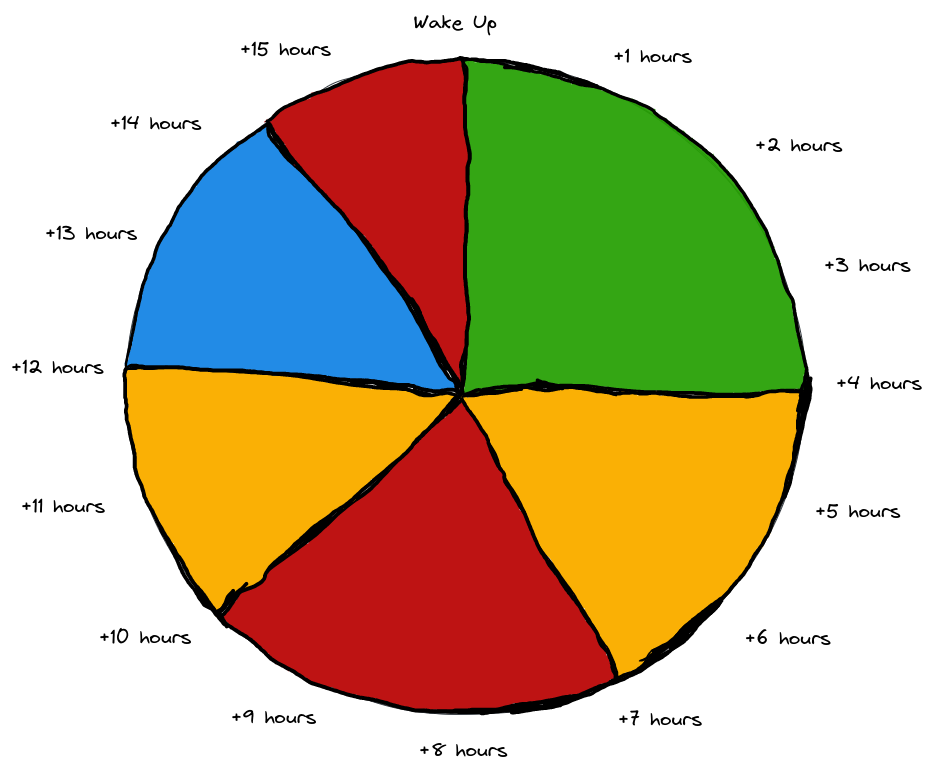🌱 At Your Best: How to Get Time, Energy, and Priorities Working in Your Favor 23 March 2023
At Your Best is a great, easy read about prioritising one's time and energy effectively. There are some criticisms of the book's argument but overall, I can't disagree with the core principle: use your time effectively on what matters most and you'll thrive. My greatest takeaway personally is to practise awareness about how I am choosing to spend my time. Even when it feels like there is no choice, I fundamentally believe that there actually is still one and thus, awareness creates freedom to choose wisely and compassionately (for my benefit and for others).
I did my little energy diagram like this:

Instead of doing absolute time, I focused on relative time to when I wake up and I assume at least 8 hours of sleep. I also used a blue colour to indicate where I might get an extra energy boost either for mental, physical, or social priorities if I reset sufficiently 12 hours after waking up.
The ideas presented in the book are not entirely novel but Carey Nieuwhof's style of writing and his intent is appealing and came across to me as sincere. I enjoyed the ease with which connections were made between burnout and finding sustainable, personal solutions to energy and time management so that you can thrive.
An especially lightbulbish moment for me was where Nieuwhof emphasises that the practices of zoning your time and selecting appropriate priorities for that time is not going to always work out. BUT one can anticipate when it's not going to work out and be more proactive about time management (rather than reactive). One of my personal challenges is often reactiveness to change so this point stood out to me as a way of connecting awareness of how I use my time to practical action when things get tough.
The pinch of salt that I would take with this book is that the author focuses on burnout and other time and energy management challenges as something that can be avoided by the individual without really unpacking systemic or toxic patterns that might influence these challenges. The book had a few references when a particular idea was used to delve into a topic or issue and I appreciated that. However, the book is more of an opinion piece than a researched and evidence-based argument.
Nonetheless, there are still lessons and interesting thoughts that I took away from At Your Best. I would recommend giving it a read if you enjoy light reading that connects strategies for time and energy management with thriving.
"Being at your best is to some extent about what you accomplish, but to a much deeper extent, it’s about creating the space you need to focus on who you’re becoming."